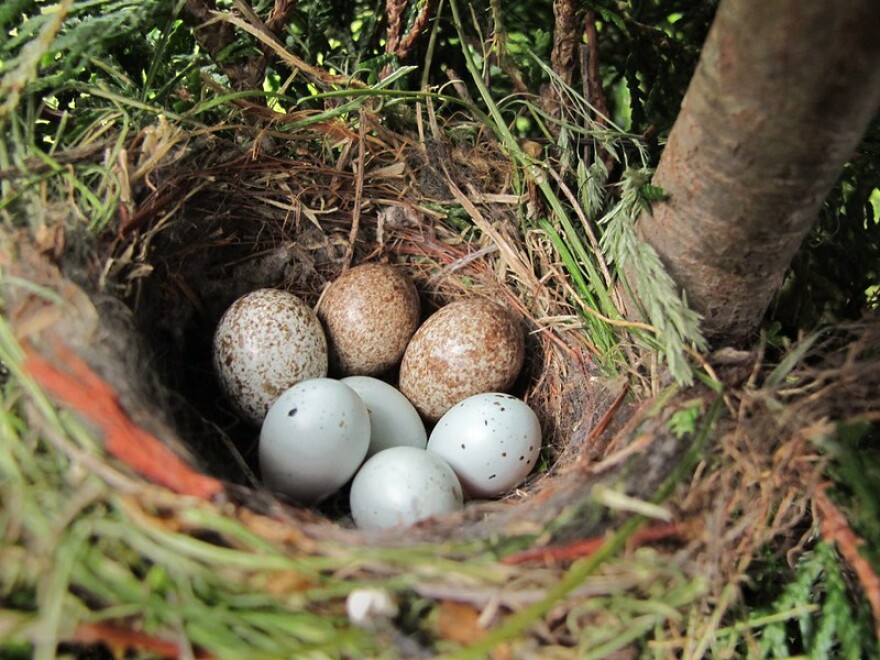
Carlos Botero is a bird enthusiast. And in all his years studying avian wonders, a particular phenomenon has always caught his eye: the behavior of brood parasites. These are birds that try to trick other birds into raising their eggs. They parasitize other nests by “squatting and dropping” their eggs there instead of using their own.
These aren’t random endeavours. Brood parasites have to be strategic — eggs should look similar in size and color so as to not stand out to the host parent.
But new research by Washington University finds that brood parasites living in more variable and unpredictable habitats are diversifying their choices. They’re literally putting their eggs in more baskets.
Botero is the senior author of the study, published Aug. 21 in the Nature Connections journal. The assistant professor of biology joined Friday’s St. Louis on the Air to explain this bird behavior and how it affects Missouri’s ecology.

Essentially, parasitic birds hedge their bets by giving their offspring more options. When survival is key, and conditions are uncertain, even the best strategic choice isn’t as wise as many varied options.
“Basically these [birds] are a shining example of how to deal with an environment that you cannot predict,” Botero said. “When there’s no information available, the next best thing you can do is diversify your risk.”
He likened these birds to hedge fund managers in the human world — noting that the idea that gave rise to the “bird-brained” cliche is badly outdated.
“Birds can have incredible cognitive capacities … They can solve puzzles, they can plan, they can have friendships,” he said. “There’s a lot of things we see in the avian world that do not fit in that idea that bird brains are somehow suboptimal.”
“St. Louis on the Air” brings you the stories of St. Louis and the people who live, work and create in our region. The show is hosted by Sarah Fenske and produced by Alex Heuer, Emily Woodbury, Evie Hemphill and Lara Hamdan. The audio engineer is Aaron Doerr.



